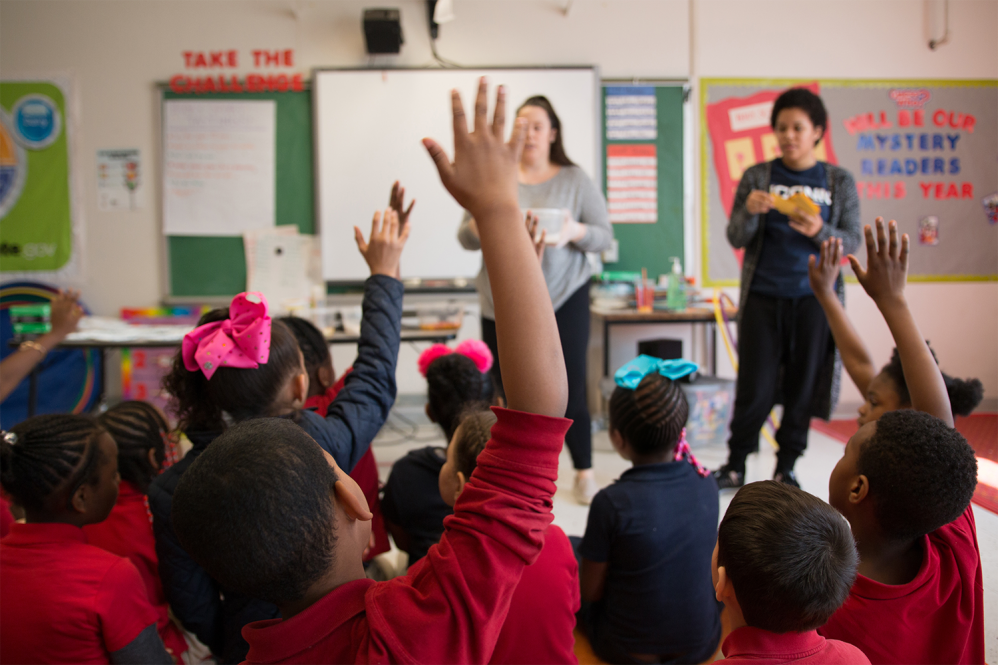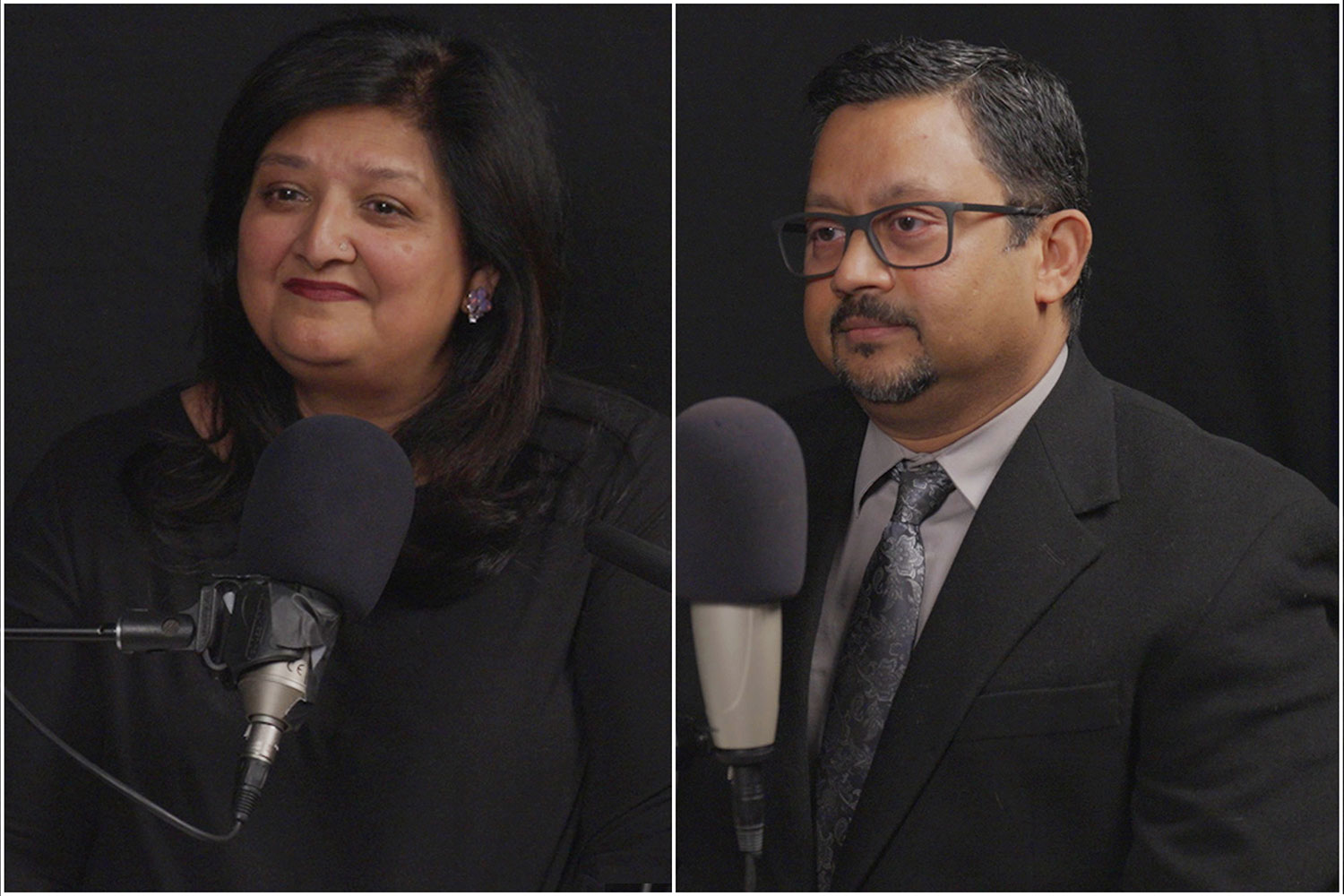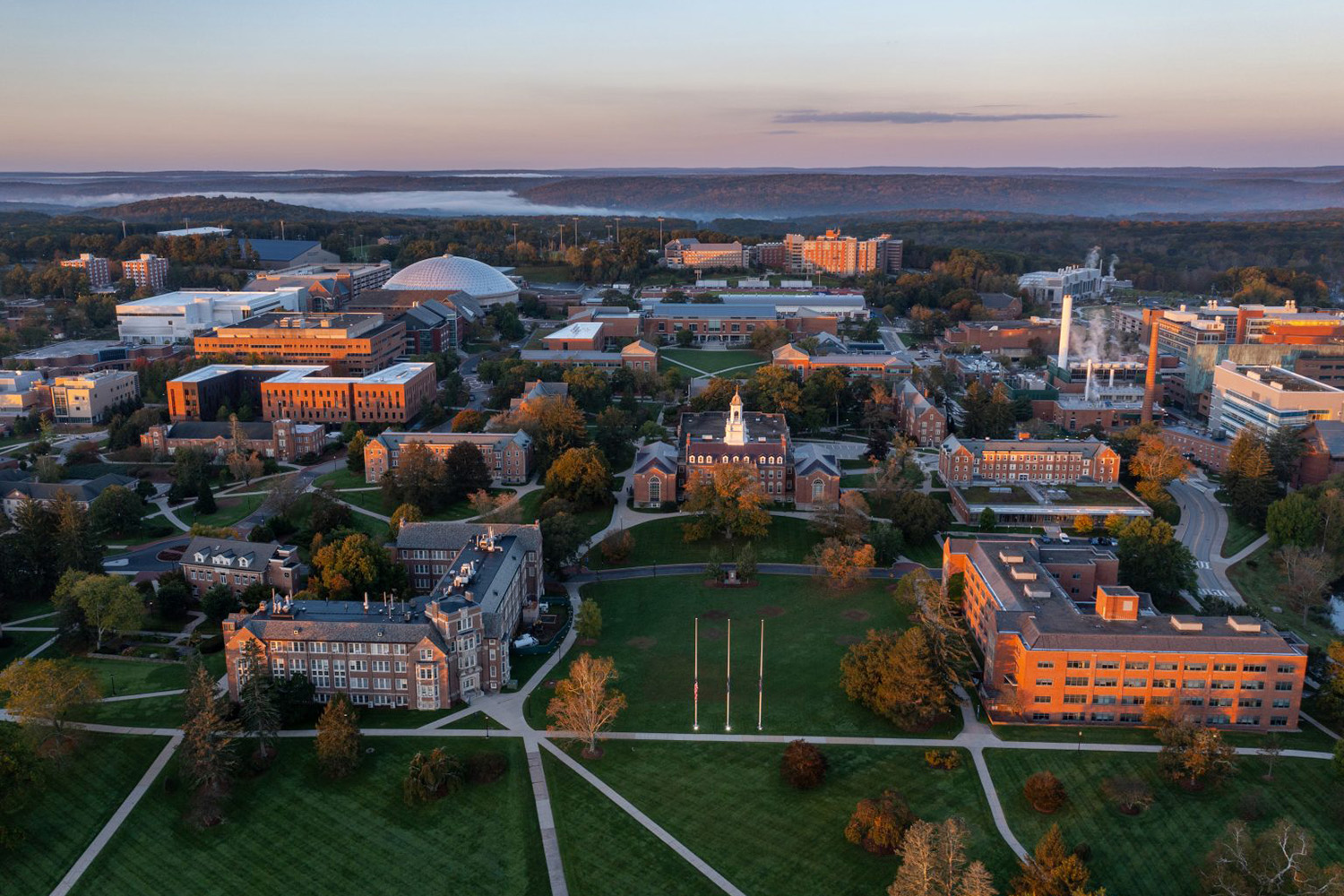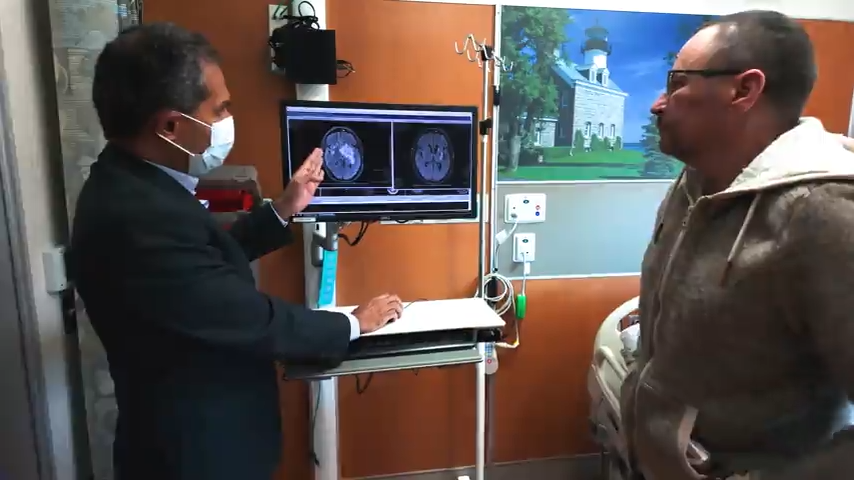The Neag School of Education is home to one of UConn’s most sustained and impactful community initiatives — UConn Husky Nutrition & Sport (UConn HNS). For more than 20 years, the organization has operated as a community-campus partnership primarily focused within Hartford’s North End, collaborating with elementary and middle schools, after-school programs, and recreation centers.
Led by Neag School Professor Jennifer McGarry, UConn HNS recently underwent a merging and rebranding process, which included building a new website to represent the current model, while continuing its vital work of encouraging healthy habits and increasing access to nutrition and physical activity education.
“Community engagement is at the heart of everything we do at the Neag School,” Dean Jason G. Irizarry says. “UConn Husky Nutrition & Sport has been a key part of that outreach for the past two decades, creating healthier school and community environments for both Connecticut’s students and adult residents. I am excited to see how this next phase of UConn HNS will deepen its impact across the state and allow it to mentor even more of our Neag School undergraduate and graduate students. The skills our students gain through UConn Husky Nutrition & Sport’s interactive, hands-on experiences are invaluable and make them better professionals in all fields.”

Historically, UConn HNS was two separate Supplemental Nutrition Assistance Program – Education (SNAP-Ed) organizations: Husky Sport (based in the Neag School) and Husky Nutrition (a UConn Health-based initiative). In 2021, as part of the most recent funding allocation of $4.2 million from the U.S. Department of Agriculture, McGarry’s team integrated full-time staff, partnerships, and programs formerly led by Professor Emerita of Medicine Ann Ferris.
Throughout decades of service, including during this most recent merger, UConn HNS has continued to build upon its strengths of in-depth collaboration with individuals and communities, as well as extending its reach to new partners across Connecticut.
“I appreciate that Dr. Ferris introduced me to the SNAP-Ed program and brought me on board as a junior faculty member so many years ago,” McGarry says. “Her mentorship has been formative to my career at UConn and engagement with community organizations across the state. While bringing our two organizations together has been no small undertaking, I am happy to be able to sustain and evolve the work of both organizations.”
Community Collaboration and Student Development
All UConn HNS community-based activities include sessions focused on physical activity and/or nutrition education. During the past year alone, UConn HNS collaborated to plan and deliver more than 1,400 educational sessions with nearly 3,300 participants. These included:
- Partnerships with 45 pre-K classrooms, delivering 448 Husky Reads lessons, which were developed by Ferris and her team and led by UConn students and staff.
- More than 50 sessions of Husky Nutrition Workshops, led by community education specialist Catalina Quesada and specialized for adults and families, were delivered at partnering public libraries, schools, senior centers, and grocery stores. Online Husky Nutrition Workshops also engaged additional community members in both English and Spanish.
- More than 80 sessions, at a wide range of partner locations, of after-school, weekend, and summertime programs.
- A sustained in-depth school-based partnership, “Husky Sport @ Wish School” in Hartford, leading to 804 educational sessions.
UConn students are involved with nearly every community activity, which aligns with the University’s priority of supporting and developing students, as outlined in its newly adopted Strategic Plan. Rather than one-time volunteer opportunities, UConn HNS provides extended and structured engagement for students through service-learning courses. More than 125 undergraduate and graduate students participate each year in courses ranging from 1-4 credits and 1000-5000 levels. Some are offered as writing intensive courses, while others are cross listed with the departments of Educational Leadership and Nutritional Sciences. These courses are set up as experiential learning, with self-reflection activities, critical social examination, and peer and team discussions.
In addition, UConn HNS has long collaborated with UConn’s Early College Experience (ECE) program, working with Connecticut high school students and educators to also be involved in similar combinations of academic rigor and engagement within nearby communities.

“What started as a partnership with one high school over 10 years ago has blossomed into the opportunity for students in nearly 15 high schools across the state of Connecticut to engage in impactful conversations and learning as it relates to systems of (in)equity within our society broadly, and connected to health and education specifically,” says Danielle DeRosa, Neag School faculty member and lead coordinator for the School’s ECE courses in Educational Leadership. “Through the partnership with the Early College Experience Program, students are able to engage in the course and its service-learning component while also receiving UConn course credit.”
So, while all pathways toward involvement with UConn HNS are not the same for all students, most initially enroll in an affiliated course. Some then take additional courses, while others are hired for paid staff roles, such as a van shift driver or a program leader, at partner locations. For select students showing a commitment to the work and partnerships of UConn HNS, they can complete paid internships for course credit aimed at empowering students to work with faculty and staff teams to gain exposure and develop skills in areas such as evaluation and research, fundraising, logistical operations, professional development, curriculum development and delivery, and digital media design.

Patricia Bellamy-Mathis ’11 BUS, ’13 MSW followed such a path with UConn HNS. She enrolled in multiple affiliated courses as an undergraduate student majoring in business. She then became a graduate assistant program leader, working with McGarry, while earning her master’s in social work. Over the years, Bellamy-Mathis, who is now a member of the UConn HNS leadership team as the director of partners & programs, has meaningfully supported hundreds of UConn students.
“The time I’ve spent with UConn HNS has been impactful from the very beginning, it’s the reason I’ve stuck around,” Bellamy-Mathis says. “I’m grateful to now be a part of the leadership team that curates programming that matters, provides space for personal and professional development, and continuously examines our practices to be sure they are representative of the communities we serve.”
Other talented students – now alumni – have also grown in various leadership positions with UConn HNS, including Madison González ’21 (CLAS), ’23 MSW and Joanee Mata ’18 (CAHNR), ’22 MPH.
“I’m so appreciative of the relationships I made during my time with Husky Nutrition & Sport,” González says. “The staff and school community continually supported my professional and personal development during my time as both an undergraduate and graduate student. From being a student volunteer, to being part of the organization as a whole, I was able to work on programming that is inclusive and creative for students, teachers, and families. Those meaningful connections are some of what I will take with me in my career!”

“My time with UConn HNS has been an invaluable experience for me, from my time as a UConn undergraduate, then graduate student, and now as a young professional,” Mata says. “My work has led to me meeting many exceptional individuals, and I hold deep appreciation for all the kids, families, and educators whom I have had the pleasure of working with. I’ve been challenged to critically think about our work and our approach to nutrition and physical activity education in a way that I would only have been able to truly reflect on by spending time outside the classroom and in the community with folks, to understand the challenges and leverage the many assets that already exist. Opportunities like these, that support students to grow as professionals, to build relationships, and challenge themselves to work in collaboration with a diverse group of people, are impactful experiences that we should continue to invest in.”
In total, UConn HNS and McGarry have collaborated with faculty and programs across the University to fund and support more than 80 Ph.D. and master’s students completing degrees across academic disciplines. Specific to the Neag School of Education, McGarry’s team of graduate assistants has included more than 40 sport management master’s and Ph.D. students, plus 20 master’s students in the Integrated Bachelor’s/Master’s teacher preparation program, over the past six years. Lindsay DiStefano, a professor in the Department of Kinesiology and UConn’s Associate Vice President for Research Development, is one longtime faculty partner.
“Contributing to UConn HNS’s efforts to integrate meaningful physical activity and nutrition activities into the daily lives of children has been one of the most impactful and inspiring experiences of my career, and that of my graduate students’ development,” DiStefano says. “Dr. Ferris and Dr. McGarry are inspiring models of UConn faculty developing and leading sustained campus-community partnerships that truly make an impact.”
Impactful Growth
With its latest round of USDA funding and a history of successful partnerships, UConn Husky Nutrition & Sport continues to strive to enhance nutrition and physical activity-based initiatives in Connecticut communities.
The organization has welcomed several new post-doctoral researchers in each of the past three years, allowing for a heightened focus on both community partnerships and UConn student support while also empowering contributions to academic publications and presentations. UConn HNS has also increased its consulting efforts, supporting curriculum development and research efforts with USDA SNAP-Ed partners in New Jersey, Indiana, and Nevada.
It is an exciting time for UConn HNS as we have made a significant amount of progress in bringing Husky Nutrition and Husky Sport together and are now in the midst of hiring staff who will shape the future of the organization. — Professor Jennifer McGarry
In preparation for summer 2024 activities, UConn HNS will soon be posting positions to build a team of 10-15 UConn students that will participate with the larger team to continue sustained partnerships and program delivery. Finally, searches for three new full-time staff are active, with plans to build out more frequent, high-quality educational programs that facilitate interactive healthy snack tastings and cooking lessons, as well as additional opportunities for physical activity within school and community-based partners all year long. New staff will also play important roles in supporting students enrolled in UConn HNS-affiliated classes and paid positions.
“It is an exciting time for HNS as we have made a significant amount of progress in bringing Husky Nutrition and Husky Sport together and are now in the midst of hiring staff who will shape the future of the organization,” McGarry says. “Our efforts to critically examine the socio-political structures that make a program like SNAP-Ed exist continue to drive us. And expanding our staff to include folks with additional perspectives and ideas of how best to collaborate with community organizations to address social determinants of health is so important.”
To learn more about UConn Husky Nutrition & Sport, visit huskynutritionsport.education.uconn.edu.



